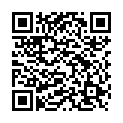|
|
|
| Module code: MAIM-211 |
|
|
4V (4 hours per week) |
|
6 |
| Semester: 2 |
| Mandatory course: yes |
Language of instruction:
English |
Required academic prerequisites (ASPO):
Written examination or term paper with presentation |
Assessment:
[still undocumented]
|
MAIM-211 (P420-0291) International Management, Master, ASPO 01.10.2012
, semester 2, mandatory course
|
60 class hours (= 45 clock hours) over a 15-week period.
The total student study time is 180 hours (equivalent to 6 ECTS credits).
There are therefore 135 hours available for class preparation and follow-up work and exam preparation.
|
Recommended prerequisites (modules):
MAIM-111 International Strategic Management
MAIM-151 Quantitative Methods
[updated 06.01.2016]
|
Recommended as prerequisite for:
MAIM-311 Seminar International Management
MAIM-321 Internationaler Management Workshop
[updated 07.01.2016]
|
Module coordinator:
Prof. Dr. Frank Hälsig |
Lecturer:
Prof. Dr. Frank Hälsig
[updated 06.01.2016]
|
Learning outcomes:
After successfully completing the course the students should be able to:
• Handle and discuss the scientific, as well as practice-oriented specialist literature on current international marketing topics
• Develop guidelines from selected marketing theories for practical use in a company
• Analyze marketing challenges in international organizations and present solutions to these in a structured manner under consideration of a data base
• Appreciate and evaluate the discussions and presentations of the other participants
[updated 06.01.2016]
|
Module content:
Intensify knowledge about current marketing topics from, for example, the following areas:
•Intercultural buyer behavior
•Global marketing strategies (for example: international brand management, international
marketing alliances)
•Approaches and methods of international market segmentation
•Country-/culture-specific differences in the fields of customer satisfaction management,
customer retention management and complaint management
•Potentials of marketing tools under consideration of cultural and economic differences
[updated 06.01.2016]
|
Teaching methods/Media:
Lecture and group work with presentation of the results by the students, when appropriate case studies
[updated 06.01.2016]
|
Recommended or required reading:
Homburg, Ch., Fürst, A. (2005), How Organizational Complaint Handling Drives Customer Loyalty: An Analysis of the Mechanistic and the Organic Approach, in: Journal of Marketing, 69, 95-114
Johnson, M.D., Gustafsson, A. (2006), Improving Customer Satisfaction, Loyalty, and Profit, Michigan
Penaloza, L. N. (1989): Immigrant Consumer Acculturation, in: Advances in Consumer Research, 16, 110-118.
Salomon, M., Bamossy, G., Askegaard, S., Hogg, M.K. (latest ed.), Consumer Behavior: A European Perspective, Harlow u.a.
Stauss, B., Seidel, W. (2005), Complaint Management – The Heart of CRM, Ohio
One of the tasks within the framework of the course will be to research and work with further topic-specific literature.
[updated 06.01.2016]
|


